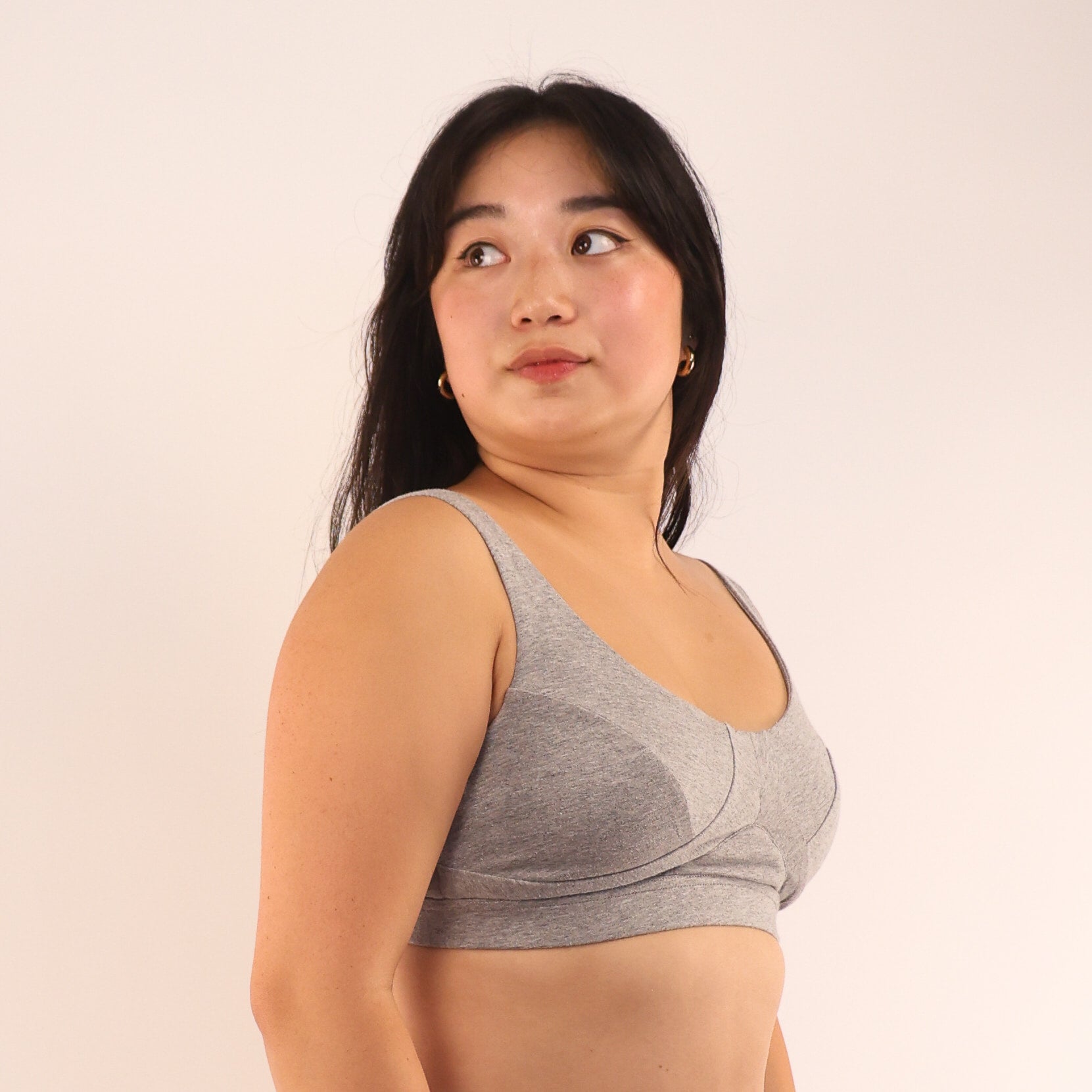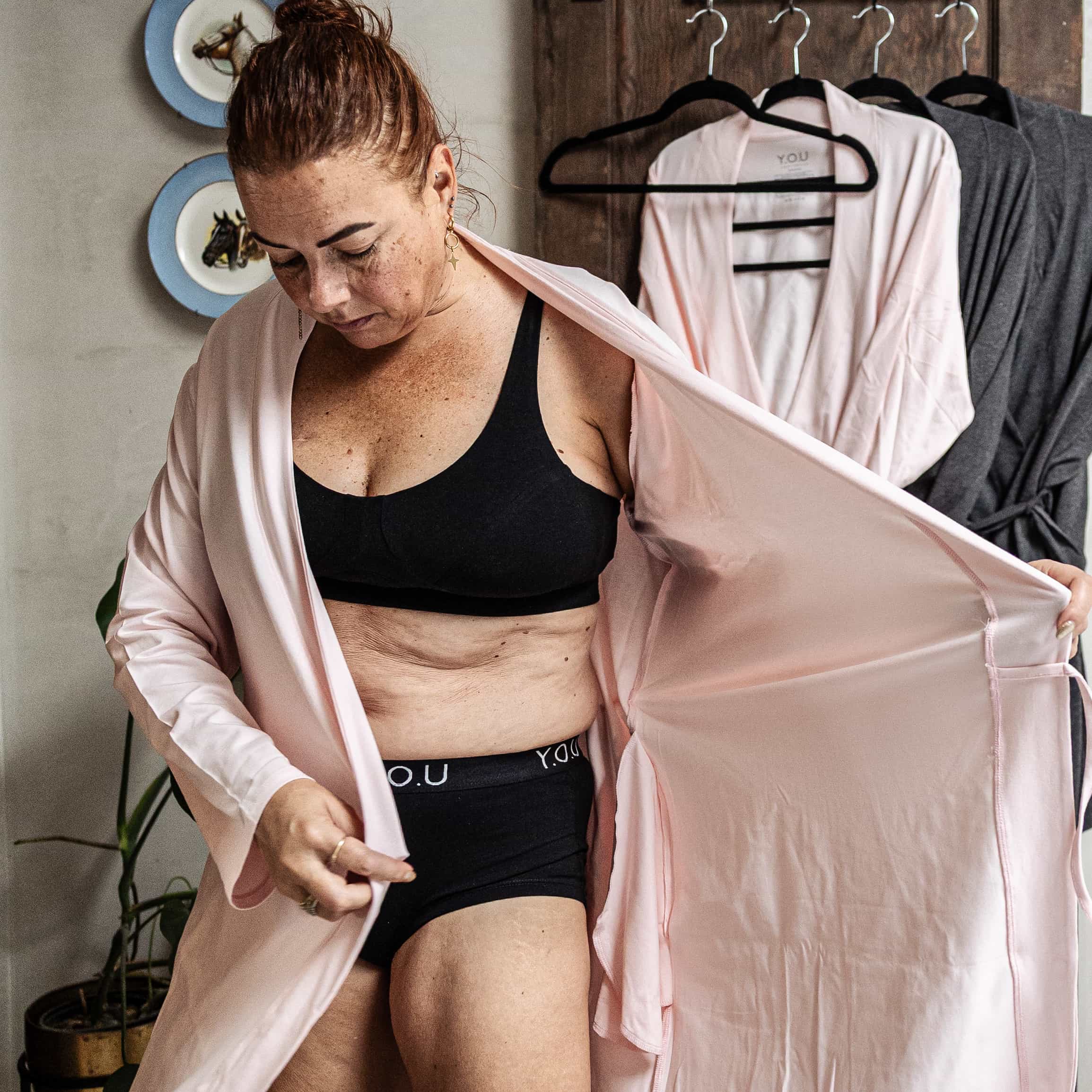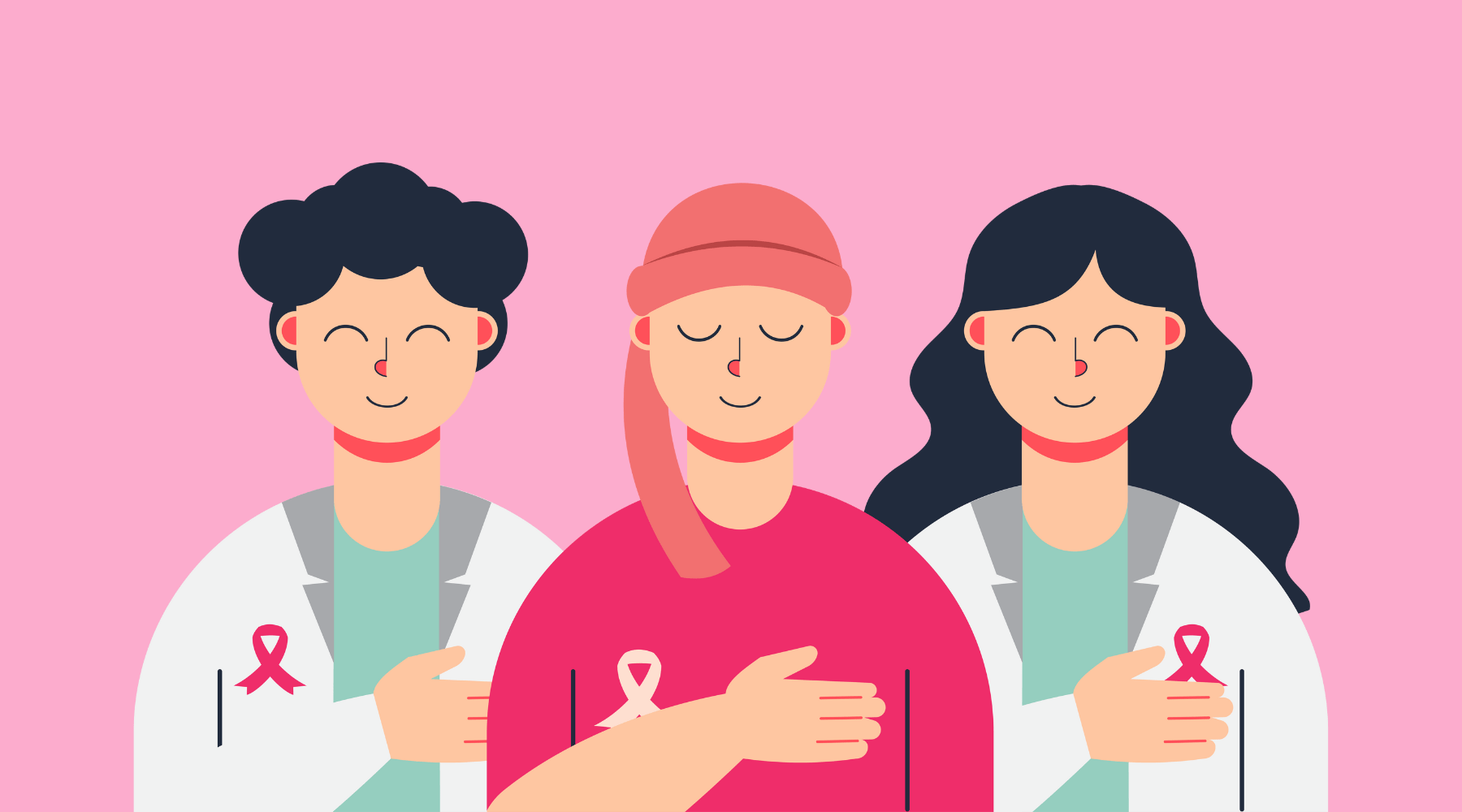
Unpacking the Menopause: Symptoms, Treatments, and Support
If you are a person experiencing menopause symptoms or you're simply curious about what's actually going on during this time, then you probably have questions. We've put together a quick run down of what happens and what support is available.

What happens during menopause?
Menopause is a natural process that occurs when a person’s ovaries stop producing reproductive hormones and they no longer have their period. In fact, the menopause itself is actually just one day - 12 months from when you had your last period. Before that, people who have periods will be in perimenopause, meaning they may experience symptoms but their periods haven’t yet stopped. Once periods have stopped for 12 months, a person is officially post menopausal, by which time their ovaries have stopped producing eggs and the body produces very little oestrogen. The menopause transition usually occurs between the ages of 45-55 but can also happen earlier, and can sometimes be medically induced.
Oestrogen is a hormone that plays a big role in the development and regulation of the bodies of people with ovaries. It helps to develop female sex characteristics and regulates menstrual cycles. Oestrogen also impacts other processes less related to reproduction such as bone and heart health and the regulating of mood and emotions.
What are the symptoms of menopause?

Perimenopause and menopause can affect people differently, but symptoms can be very strong and have a big impact on day-to-day life. Lots of people experience issues such as hot flushes, night sweats, headaches, muscle ache, sensitive teeth, difficulty sleeping, and brain fog (issues with memory and concentration). Menopause can also have a big impact on mental health, leading to issues such as low self esteem and anxiety.
What are the possible treatments for menopause?
While there is not currently enough research into all the health issues associated with perimenopause & menopause and how they can be treated, there are various ways to alleviate symptoms. Some approaches and medications might work for certain people and not for others so it can be helpful to try out different things and continue having conversations with a doctor or health professional.

The first changes you can try are to do with lifestyle in terms of diet & exercise. Maintaining a healthy and varied diet as well as keeping up regular exercise is always going to be beneficial. Regular walking is one of the best ways to boost your health and keep your body functioning at its best. As bones can become weaker in people experiencing perimenopause & menopause, exercise that increases bone density - such as weight lifting, running, and dancing - can help improve bone health. Yoga and pilates can also help ease muscle ache and improve sleep.
Ensuring that you get enough vitamins & minerals is also crucial as your body is going through changes. Since levels of vitamin D and B vitamins drop during this time, as well as calcium, magnesium, and other minerals, it can be helpful to use supplements to maintain healthy levels. Some people find vitamin injections are particularly useful and are better absorbed by the body.
Medical Treatment
There are a range of medical treatments that can help with relieving menopause symptoms. The most well known one is HRT (hormone replacement therapy) which works by replacing the hormones that start to drop during perimenopause, usually oestrogen and sometimes progesterone. This can ease many of the common symptoms of menopause. Speaking to a medical professional is the best way to find out if this is a suitable treatment for you. There are other hormonal treatments you may be recommended such as a cream containing oestrogen or testosterone.

Some other medicines may be useful for treating specific symptoms such as blood pressure medicines, an epilepsy medicine which can help with hot flushes, or antidepressants for mental health issues.
Remember that every body is different and it’s important to talk through your symptoms and possible treatments with a medical professional.
Where to find menopause support and information
While perimenopause and menopause can lead people to feel stressed and isolated, as well as confused about the often conflicting information around, it’s important to know you’re not alone! Having a good support group you can rely on can be really helpful. Talking through symptoms and treatment options with other people who are experiencing or have experienced the menopause might be beneficial.

The Pause Live! website for example contains a wealth of information surrounding symptoms and treatment options as well as signposting to support groups and information sources such as relevant books.
There are definitely lots of options out there to support people experiencing menopause and conversations around it are becoming more normalised. Improving education and knowledge on the subject is one of the best ways we can break down stigmas and support people through this confusing time!
Treat Yourself!
If you're feeling in need of some "me-time" then take a look at our super soft organic cotton range of underwear and loungewear for 24/7 comfort. Don't feel bad for resting during this time - your body is going through a lot and it's normal to slow down!

Read more about women's health:
Demystifying the Menopause with Emma Thomas: A Hormone to Harmony Journey
Everything You Need to Know About Smear Tests
Meet Lou Featherstone: Menopause Mindset Shifter
Images courtesy of Y.O.U Underwear & Canva.





















Leave a comment
This site is protected by hCaptcha and the hCaptcha Privacy Policy and Terms of Service apply.